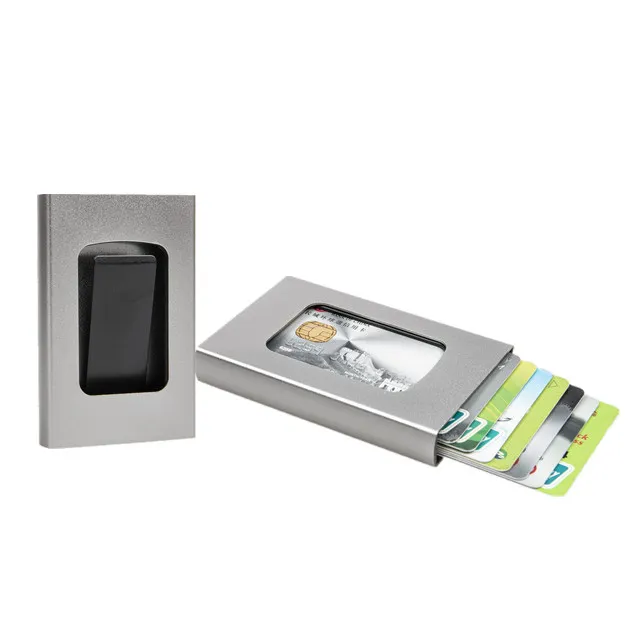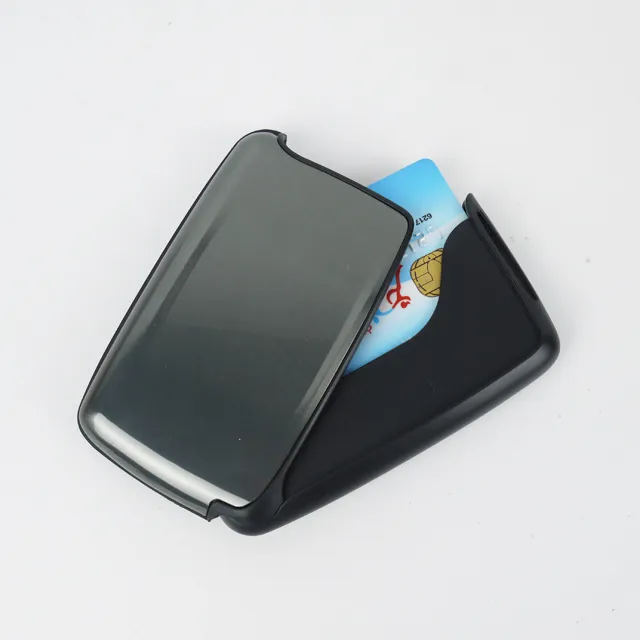RFID Wallets: A Smart Solution for Modern Security
2024-11-06
In today’s digital age, protecting personal information is more important than ever. With the rise of contactless payments and digital cards, RFID technology (Radio Frequency Identification) has become a common feature in many of the devices we use daily. But did you know that RFID technology can also play a major role in protecting your personal information from theft? Enter the RFID wallet—a sleek and practical solution to safeguarding your data while keeping your cards and cash organized.
In this blog, we’ll dive into what RFID wallets are, how they work, and why they’ve become an essential accessory for modern-day security.
What is an RFID Wallet?
An RFID wallet is a type of wallet designed to block unauthorized access to the radio frequency identification (RFID) signals that are used in certain credit cards, debit cards, and identification cards. These wallets are specially crafted with materials that prevent RFID readers from scanning and stealing your personal data.
Many modern credit and debit cards now come equipped with contactless payment features, meaning they have an embedded RFID chip that transmits your card details wirelessly when placed near an RFID reader. While this technology offers convenience for making payments, it also opens the door for potential skimming—a form of electronic pickpocketing where criminals use scanners to steal your card data without ever physically touching your wallet.
RFID wallets address this issue by using special RFID-blocking materials such as aluminum, carbon fiber, or copper mesh to shield your cards from unauthorized scanning. This provides an extra layer of protection against data theft and identity fraud.
How Do RFID Wallets Work?
RFID wallets work by utilizing electromagnetic shielding to block the radio waves emitted by RFID-enabled cards. When you store your cards in an RFID wallet, the wallet essentially acts as a Faraday cage, preventing radio signals from escaping or being intercepted.
Here's how it works:
1. RFID Cards and Contactless Payments: RFID-enabled cards emit radio waves that can be read by scanners within a short range (typically a few inches). This allows for contactless payments, where you simply tap your card near a terminal to complete a transaction.
2. Shielding Technology: RFID wallets contain materials that disrupt or absorb these signals, preventing any scanner from reading the data on your cards without your knowledge. The wallet creates a protective barrier that blocks electromagnetic fields, so your personal information stays safe even in crowded areas like public transportation or busy city streets.
3. No Need for Extra Steps: Unlike some security measures, such as turning off your cards or placing them in a signal-blocking pouch, RFID wallets provide protection automatically and passively. Simply placing your cards in the wallet will keep them safe from unauthorized scanning.
Benefits of Using an RFID Wallet
While the main benefit of an RFID wallet is enhanced security, there are several other reasons why this accessory has become so popular:
1. Protection from Identity Theft
One of the most important reasons to use an RFID wallet is to protect yourself from identity theft. Criminals can use RFID skimming devices to steal personal information like your name, card numbers, and even your contact details. This information can then be used to commit fraud or make unauthorized purchases. An RFID wallet gives you peace of mind by blocking unauthorized access to your sensitive data.
2. Convenience
RFID wallets allow you to use your contactless cards just like normal, so you can still make payments quickly and efficiently. There’s no need for any additional steps like manually activating your card or carrying around special accessories—just place your cards in the wallet and go about your day.
3. Sleek and Stylish
RFID wallets come in a wide variety of designs, from classic leather wallets to modern minimalist styles, so you don’t have to sacrifice fashion for security. Whether you prefer a traditional bifold wallet or a more compact money clip, there’s an RFID wallet that suits your style.
4. Easy Organization
Many RFID wallets come with smart organizational features, like multiple card slots, a dedicated cash compartment, and even coin pockets. This makes it easier to keep your items neatly organized and accessible while maintaining the protective qualities of the RFID-blocking material.
5. Durability
Because RFID wallets are designed to withstand everyday wear and tear, they tend to be made from durable materials like genuine leather, nylon, or stainless steel. This means that not only do they keep your information secure, but they also last longer than conventional wallets.

Types of RFID Wallets
RFID wallets come in various shapes, sizes, and styles to suit your needs. Here are some of the most common types:
1. Bifold RFID Wallets
A classic bifold wallet is a popular choice for those who prefer a more traditional style. It typically features multiple card slots, a billfold for cash, and a simple, foldable design. Many high-end leather brands now offer bifold wallets with RFID-blocking technology integrated into the material.
2. Slim and Minimalist RFID Wallets
For those who prefer a more streamlined, minimalist look, slim RFID wallets are a great option. These wallets are typically very compact and can hold just the essentials—cards and cash—without adding bulk to your pocket or bag.
3. RFID Money Clips
If you don’t like carrying a bulky wallet, an RFID money clip might be the perfect choice. These clips are designed to hold cash and a few cards securely while blocking RFID signals. They’re great for individuals who prefer a minimalist, sleek design and don’t need to carry many cards.
4. RFID Passport Holders
Traveling internationally? An RFID passport holder is a smart choice to keep your passport, credit cards, and other important documents safe from unauthorized scanning. These wallets typically feature multiple compartments for organizing travel essentials, including passport sleeves and slots for cards.
5. RFID Phone Wallets
Some RFID wallets are integrated with phone cases, providing a two-in-one solution for people who want to keep both their cards and phone protected. These combined wallets are great for those who like to streamline their accessories and carry less.

How to Choose the Right RFID Wallet
When shopping for an RFID wallet, there are a few factors to consider:
1. Size and Storage Capacity
Think about how many cards and how much cash you carry daily. If you need space for a lot of cards, choose a wallet with plenty of card slots. If you only carry the essentials, a slim wallet or money clip might be a better option.
2. Material and Durability
RFID wallets come in a variety of materials, including leather, nylon, carbon fiber, and metal. Leather is classic and stylish, while metal and carbon fiber offer added durability and strength. Choose a material that fits your lifestyle and aesthetic preferences.
3. Security Features
While all RFID wallets block signals, some offer additional features, such as anti-theft zippers, RFID-blocking technology in all compartments, or a shockproof design for extra protection. Consider your security needs based on where and how often you’ll be using the wallet.
4. Design and Style
Your wallet should reflect your personal style. RFID wallets come in a variety of colors and designs, from classic brown or black leather to modern, minimalist options. Choose one that complements your wardrobe and fits your daily needs.
Conclusion
In today’s digital world, where personal data is constantly at risk of being compromised, RFID wallets offer a simple, yet effective way to protect yourself from identity theft and electronic pickpocketing. With their ability to block RFID signals and prevent unauthorized scanning, RFID wallets are an essential accessory for anyone who carries contactless cards or uses digital payment methods.
Not only do RFID wallets offer enhanced security, but they also provide convenience, style, and durability. Whether you're looking for a sleek minimalist design or a more traditional bifold wallet, there’s an RFID wallet out there that suits your needs and helps keep your personal information safe.
So, the next time you’re shopping for a new wallet, consider investing in an RFID wallet. It’s a small change that can make a big difference in protecting your financial and personal data.


